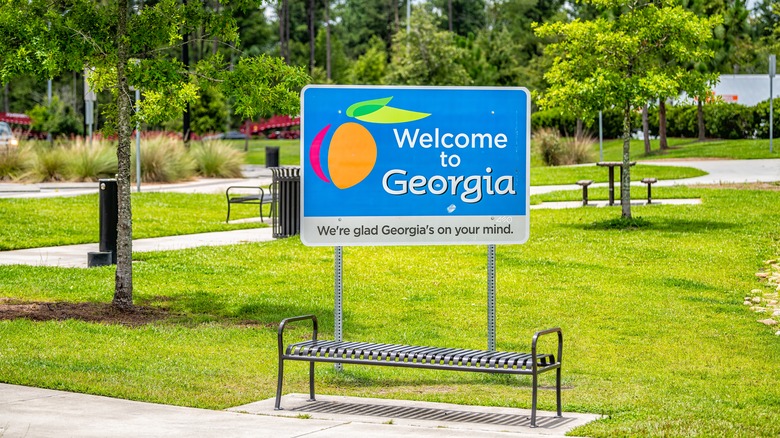Why You Shouldn't Skip The Tourism Center When Arriving At Your Destination
With the rise of the Information Age, it could be argued that broad access to personal technology like laptops and phones, as well as search engines like Google, have made travel infinitely more convenient and accessible. Yet they have also made it that much more complicated, because we are simply spoiled for choice in almost every way when it comes to taking a trip.
There are endless blogs that serve as information sources, tons of platforms to book flights, hotels, and rental cars, and unending lists of options for privately guided tours, group sightseeing trips, and curated excursions. With all these options at our fingertips, it may just make you want to book a flight, show up, and hope for the best.
But the solution to this modern problem is actually already at your destination. While it may seem too simple of an answer to be true, tourism centers are still one of the best ways to discover a destination. This is where you'll find real insight from local experts on the best things to do, places to see, and locations to eat, all without having to spend hours on your computer.
Tourism centers relieve information overload
While information points and tourism centers can seem like something people utilized in the past, maybe our parents and grandparents were onto something. These days it can be truly difficult to find specific, detailed, or even up-to-date information about a city or a region online. With tourism centers, you'll almost always have access to the best and most recent information, since the people working there are usually residents tapped into the latest news about local events, who runs the best tours, and where visitors can find the finest version of whatever local dish they're aching to try.
Even better, tourism centers usually have access to information on the best deals and can provide discounts for just about anything you can think of, from car, bicycle, and off-road vehicle rentals to cooking classes and private tours of the local monastery.
Most importantly, if there are significant changes to local rules and regulations, tourism centers are often among the first to know so they can communicate this information to incoming visitors. This definitely comes in handy if you don't speak the language, and you're having a hard time understanding where to buy tickets or access a nearby historical site. In many countries, local authorities and curators don't keep online information up to date, so tourism centers are essential.
Tourism centers offer a lot more than you would expect
Tourism centers around the world can offer a whole lot more than just information about the best local day trips and ongoing events. Another type of tourism hub is the Welcome Center, which can be found along state lines across the United States. These function as tourism centers but may also double as rest stops. You will often find that these have bathroom facilities, vending machines for food and drinks, fuel, and even dump stations for recreational vehicles while also offering everything else you can expect from a tourism center.
Many tourism centers also take advantage of the opportunity to make a little extra income and have a gift shop so you don't go home empty-handed. These can offer everything from T-shirts to posters and are sometimes a better option than buying from tourist traps that may try to rip you off with poor-quality items.
Then there are the tourism centers that go above and beyond, such as the Arizona Center in Phoenix. This is a mixed-use complex that has food, shopping, theaters, and even a hotel, all for visitors and locals alike to enjoy. A visitor center dedicated to the Greater Phoenix area is located within this complex, so everything you need is within arm's reach.


